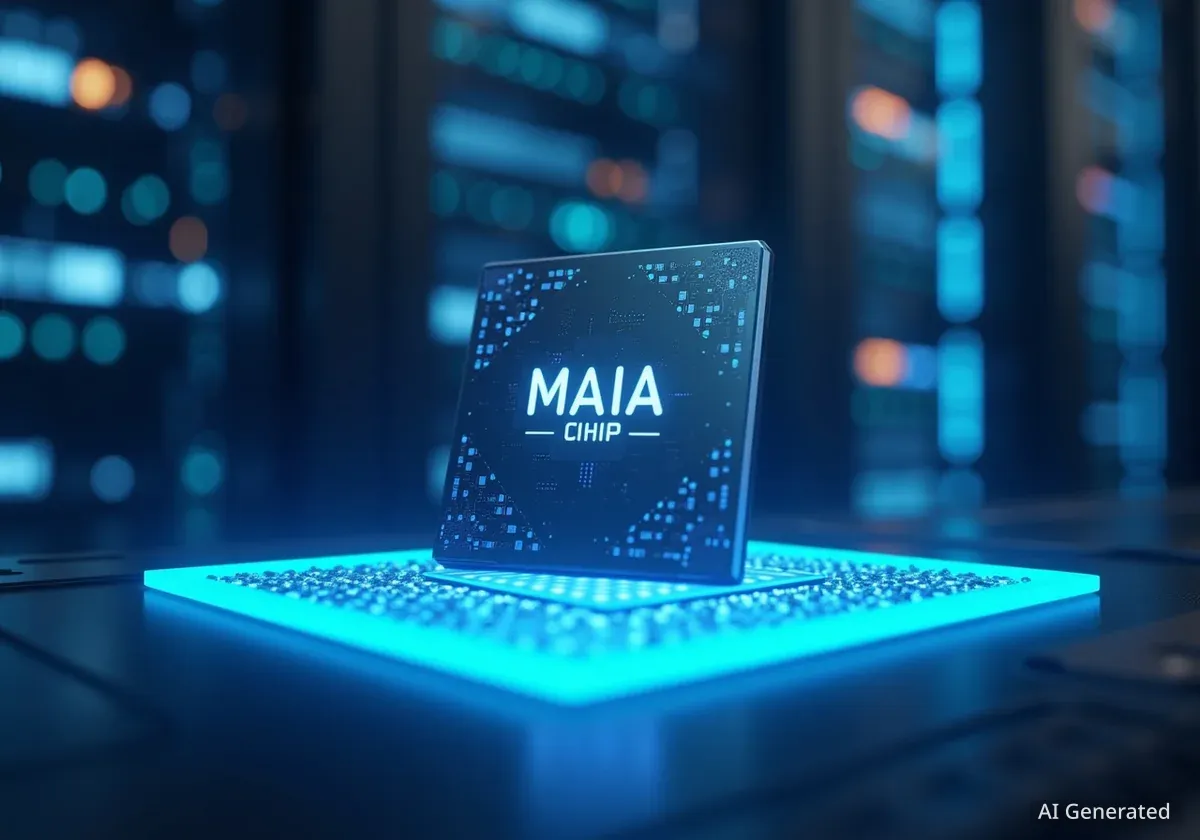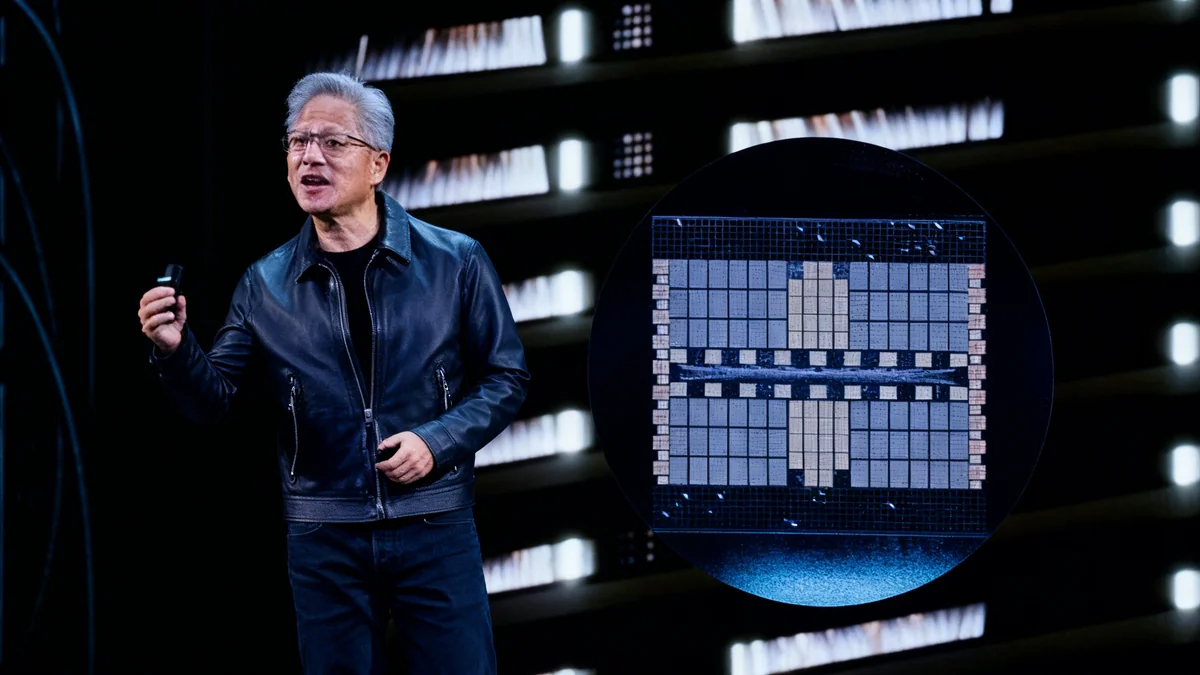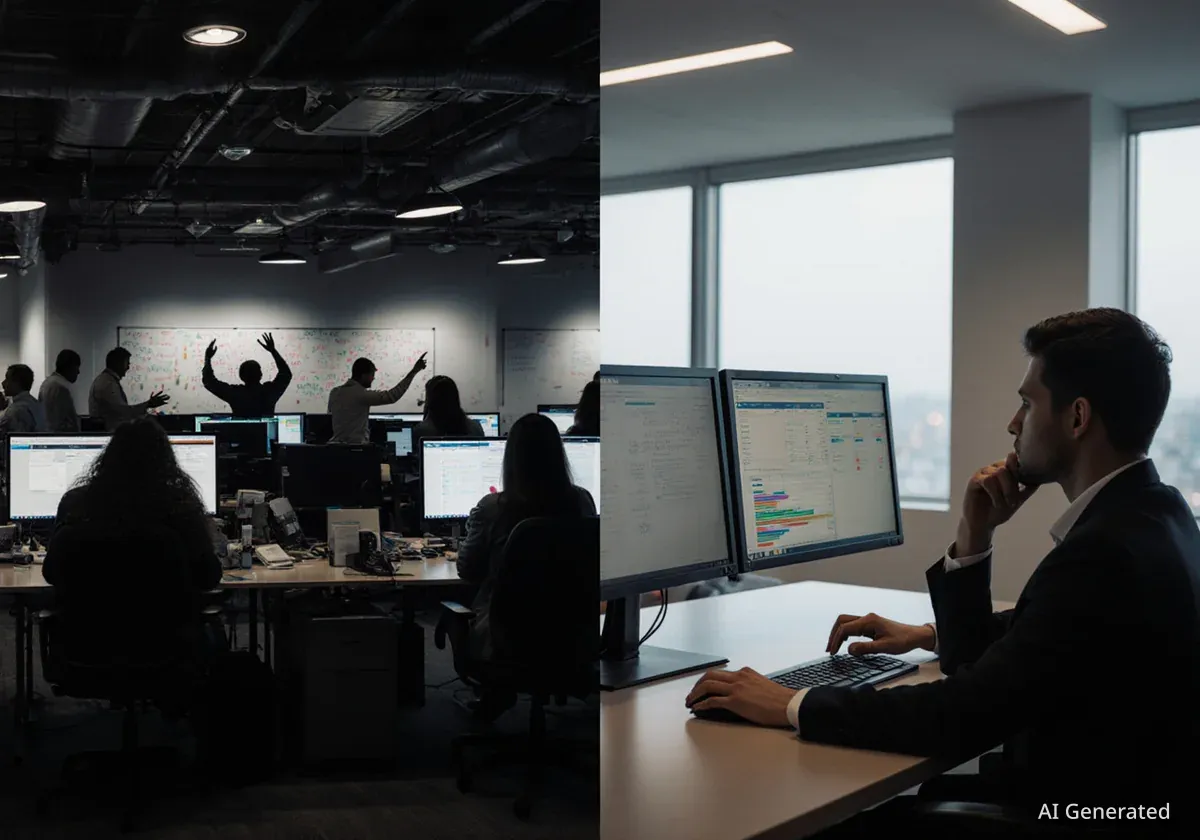Marvell Technology is set to experience significant growth due to its exclusive partnership with Microsoft on the custom-designed Maia AI accelerator chip. As Microsoft increases production of this specialized hardware, analysts project a substantial positive impact on Marvell's revenue and market position in the coming years.
This collaboration places Marvell at the center of a major trend where large technology companies develop their own application-specific integrated circuits (ASICs) to optimize artificial intelligence workloads, reducing their reliance on general-purpose chips.
Key Takeaways
- Marvell Technology is the exclusive ASIC partner for Microsoft's custom Maia AI accelerator chip.
- Increased production of the Maia chip is expected to be a primary driver of Marvell's future revenue growth.
- Some analysts project Marvell's fiscal year 2026 revenues could approach $10.5 billion, largely due to this partnership.
- The company has signaled confidence through a $6 billion share buyback program and increased insider stock purchases.
- The move reflects a broader industry shift by tech giants like Microsoft and Amazon to create custom silicon for AI.
Microsoft's Custom AI Chip Initiative
Microsoft is heavily investing in its own custom silicon to power its expanding AI services, including its Azure cloud platform and Copilot products. The centerpiece of this strategy is the Maia AI accelerator, a chip specifically designed to handle large language model training and inference tasks more efficiently.
By creating its own hardware, Microsoft aims to gain more control over its technology stack, optimize performance for its specific software needs, and potentially reduce long-term operational costs. This in-house development is a strategic move to compete more effectively in the AI infrastructure space.
Marvell's Exclusive Role
Marvell Technology was selected by Microsoft as the sole partner to develop the application-specific integrated circuit (ASIC) for the Maia chip. This means Marvell is responsible for designing and supplying the core silicon that makes the Maia accelerator function.
This exclusive relationship is a significant win for Marvell, positioning it as a key supplier for one of the world's largest technology companies. As Microsoft ramps up deployment of Maia chips across its global data centers, Marvell is directly tied to the success and scale of this initiative.
What Are AI ASICs?
Application-Specific Integrated Circuits (ASICs) are microchips designed for a particular use rather than for general-purpose use. In the context of AI, companies design ASICs to perform specific tasks, like running a particular machine learning model, with much greater speed and power efficiency than a general-purpose CPU or even a GPU. This specialization is crucial for handling the massive computational demands of modern AI.
Projected Financial Impact on Marvell
The partnership with Microsoft is expected to be a major catalyst for Marvell's financial performance. The demand for custom AI chips is growing rapidly, and Marvell's role in the Maia project provides a clear path to accelerated revenue growth.
Based on the anticipated scale of Microsoft's deployment, some market analysts are forecasting that Marvell's revenue for fiscal year 2026 could reach as high as $10.5 billion. This would represent a significant increase from previous years and would be largely attributed to the custom AI chip business.
By the Numbers: Marvell's Financial Signals
- $6 Billion: The total value of Marvell's authorized share repurchase program.
- Accelerated Repurchases: The company has been actively buying back its own stock, signaling to the market that its leadership believes the shares are undervalued.
- Insider Buying: There has been a noted increase in stock purchases by Marvell executives and board members, another strong indicator of internal confidence.
These financial actions suggest that Marvell's management is confident in the company's long-term growth trajectory, particularly with the revenue from major AI projects set to increase.
The Competitive Landscape for Custom Chips
The market for custom AI silicon is becoming a critical battleground for semiconductor companies. For years, Nvidia has dominated the AI hardware market with its general-purpose GPUs. However, tech giants are now seeking more specialized and cost-effective solutions, leading to the rise of custom ASICs.
A Duopoly in the Making
Currently, the custom AI ASIC market is largely seen as a two-company race between Marvell and its primary competitor, Broadcom (AVGO). Broadcom has established itself as an early leader, securing high-profile custom chip deals with companies like Google and Meta.
Marvell's exclusive deal with Microsoft for the Maia chip solidifies its position as the other major player in this duopoly. The success of this project is crucial for Marvell to demonstrate its capabilities and compete for future custom silicon projects from other hyperscale cloud providers and large enterprises.
Risks and Strategic Considerations
While the outlook for Marvell is positive, the company faces certain risks. The most significant is customer concentration. A large portion of its projected custom silicon revenue is tied to a single client: Microsoft. Any changes in Microsoft's strategy, production timeline, or relationship with Marvell could have a disproportionate impact on the company's performance.
Furthermore, competition remains intense. Broadcom is a formidable rival with deep resources and established relationships. Other semiconductor companies are also attempting to enter the custom AI chip market, which could increase competitive pressure over time.
"The race for building out custom accelerator chips or AI ASICs has quickly become a duopoly. Marvell's exclusive role in Microsoft's Maia program positions it for significant upside, but also concentrates its risk," noted one industry analyst.
Despite these challenges, Marvell's strategic position appears strong. The broader industry trend is moving toward more specialized hardware for AI, and Marvell has secured a foundational partnership with one of the most important players in the field. The successful execution of the Maia project will be a key indicator of its long-term success in this high-growth market.





